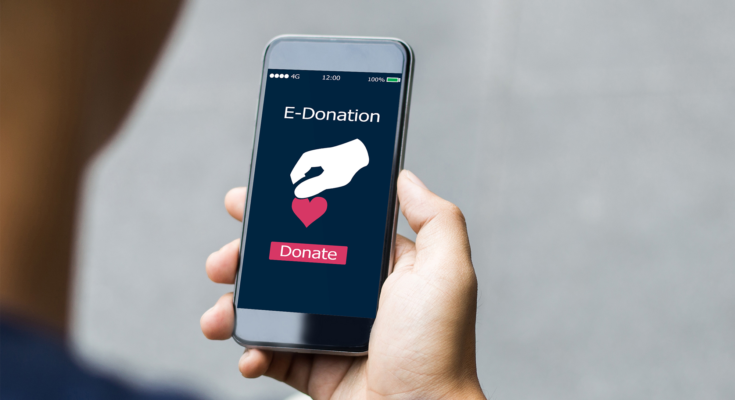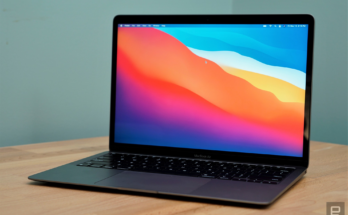All products recommended by Engadget are selected by our editorial team, independent of our parent company. Some of our stories include affiliate links. If you buy something through one of these links, we may earn an affiliate commission.
Let’s be honest, it’s been a rough decade at this point, and things seem to be getting worse rather than better. Online radicalization has seen many of the world’s political systems spin out of control to the point of uselessness. Climate change is a problem facing literally all of us that few in power seem interested in addressing. And our economic situation seems to be predicated on everyone buying lots of stuff all the time, despite the fact that most of the cost of living is swallowed up by housing. It’s a lot, and things can feel generally very bleak right now.
But, as the proverb says, it is always better to light a candle than it is to curse the darkness, so we’ve brought some matches. Today is a good time to try and make a positive impact in the world by backing organizations that can make the world a little better for all of us. That includes helping to better educate future generations, making life easier for kids who need serious medical care, or are in poverty, as well as addressing the climate crisis. This could never be an exhaustive list of good causes to donate to, but we’ve tried to pick out charities and non-profits whose general aims are probably already supported by Engadget readers.
Able Gamers

Able Gamers
Able Gamers is a 501(c)(3) non-profit organization, EIN: 30-0533750. It has been given a 97/100 score by Charity Navigator.
Able Gamers was set up in 2004 to help people with disabilities to play video games and to make games more accessible overall. Given that video gaming can often help connect people over long distances, its use to combat isolation has never been more relevant.
As well as working with individuals, it has a large role in advocating for better game and peripheral design to help empower players. Its most notable achievement, arguably, is its involvement in creating Microsoft’s Xbox Adaptive Controller.
The best way for you to support AbleGamers is to make a financial donation through its Network For Good page.
Bridging Tech

Bridging Tech
Bridging Tech is a 501(c)(3) non-profit organization, EIN: 85-1031712. It has not yet been evaluated or given a score by Charity Navigator.
Bridging Tech was founded by a pair of Stanford students concerned that COVID-19 would exacerbate inequalities in the education system. The transition to online learning risked leaving behind a number of children who lacked access to their own computer and internet connection.
That’s where Bridging Tech comes in, receiving donated laptops, refurbishing them for educational use and taking them to children affected by homelessness. The team’s focus is getting devices in the hands of K-12 students living in shelters across many cities in the US.
It’s early days, but so far Bridging Tech has taken in 2,653 devices and has plans to expand in the near future. It works with Computers 2 Kids (C2K) which helps process and refurbish the machines ready to be handed to a child in need.
There are two ways in which you can support Bridging Tech: Either with a financial donation, or by handing over your old machine. If you are in college, meanwhile, you can sign up to help tutor a homeless child, coaching them through subjects and their SAT or ACT examinations.
Child’s Play Charity

Child’s Play
Child’s Play is a 501(c)(3) non-profit organization, EIN: 20-3584556. It has been given a 100/100 score by Charity Navigator.
Child’s Play is a non-profit that donates toys and games to children’s hospitals and domestic violence shelters around the world. The group also ensures that the titles on offer are relevant and appropriate for the environment and can be used as an educational or therapeutic tool.
Of course, a big part of the group’s mission is to make staying in hospital less of a traumatic experience for children. Being able to play a video game helps kids with long-term care needs to feel like they’re in a comforting, home-like environment.
You can support Child’s Play with a financial donation, as well as buying merchandise from its store. In addition, a number of hospitals have dedicated Amazon wishlists which, should you wish to support a local (or far away) facility.
Donate to Child’s Play Charity
Clean Air Task Force

Clean Air Task Force
Clean Air Task Force is a 501(c)(3) non-profit organization, EIN: 04-3512550. It has been given a 93.72/100 score by Charity Navigator.
The Clean Air Task Force is a body that works with lawmakers to push for climate-friendly policies. It was founded in 1996 with the aim of getting old, coal-fired power plants to be held to the same emissions standards as new plants.
Since then, the group has worked to advocate for further reductions in carbon emissions from energy generation. As Vox reported last year, the CATF was lauded both by Founders Pledge and Giving Green for its success at promoting bi-partisan cooperation on emissions laws.
You can support the Clean Air Task Force with an online donation, wire transfer or even by making a gift of stocks or other securities.
Donate to Clean Air Task Force
Code.org

Code dot org
Code.org is a 501(c)(3) non-profit organization, EIN: 46-0858543. It has been given a 100/100 score by Charity Navigator.
Code.org is a non-profit organization which aims to expand access to computer science in schools. Its mission is to give every child the opportunity to study the subject and, in fact, it provides much of the K12-curriculum in a number of US schools. In addition, it offers a wide variety of courses for you to try at home at no cost, which are pitched at pretty much any age group. I’ve been letting my five-year-old have a go at some of the very basic coding tutorials and she loves them so much it’s hard to get my iPad back from her.
If you want to support Code.org, you can make a financial donation, or get involved with your local school’s program. That can be as simple as asking the school to teach computer science (using Code.org’s classroom materials) and there are materials online to teach your own kids how to code. In addition, if you are a software engineer, you can volunteer your time to be a guest speaker in a classroom or teach an “Hour of Code” session. If you can speak a different language, meanwhile, you can contribute to translating educational materials.
Electronic Frontier Foundation (EFF)

EFF / Getty Creative (background)
The Electronic Frontier Foundation (EFF) is a 501(c)(3) non-profit organization, EIN: 04-3091431. It has been given a 94.9/100 score by Charity Navigator.
Obviously, any round-up of good causes to support within the tech sector starts with the Electronic Frontier Foundation. Founded in 1990, the organization has a mission to protect free expression, privacy and digital security, and uphold the rights of individuals all over the world. The body has worked to improve voting security in the US, battling frivolous lawsuits that threaten free speech and critiquing badly-written, illiberal or generally stupid legislation.
You can support the EFF with a cash donation, as well as gifts of stock, cryptocurrencies and through AmazonSmile purchases. While it has previously accepted donations of hardware, it’s not currently doing so, although you can donate your vehicle to its cause. If you want to support the body with your own skills, you can volunteer to help, with coders, translators, technologists, community organizers, attorneys, researchers and designers all required.
Girls Who Code

Girls who Code
Girls Who Code is a 501(c)(3) non-profit organization, EIN: 30-0728021. It has been given a 100/100 score by Charity Navigator.
Girls Who Code is a non-profit organization with the aim of encouraging girls to study STEM, specifically computer science, subjects. It runs a series of classes for young women as after school clubs, short courses and summer schools.
For instance, newbie coders can sign up to a Girls Who Code Club, and spend one or two hours a week learning the basics of software development. These are run for grades 3-12 in K-12 schools, as well as in 200 colleges across the US. The body says that it has already helped teach computer science to 450,000 girls, with half of that figure coming from “historically underrepresented groups.”
You can support Girls Who Code with a financial donation, via Classy.org, or they can set up a club to help train more coders locally. Would-be club leaders need access to technology and a space at a school, library or other public space for one or two hours a week, and will be required to pass a background check.



